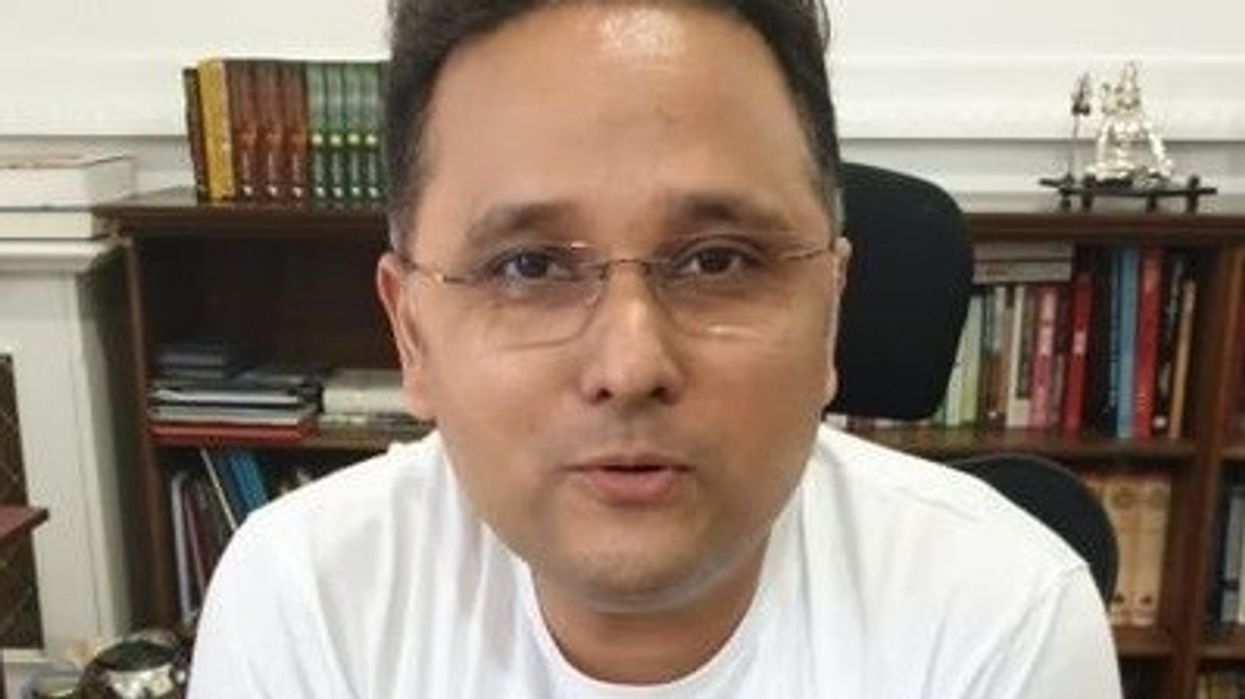Bestselling author Amish Tripathi has concluded his tenure as Director of the Nehru Centre and Minister for Culture and Education at the High Commission of India in London. Over the course of four years, he actively coordinated numerous India-focused cultural events in the capital.
The 49-year-old diplomat oversaw the Nehru Centre's transition to several remote events over the course of the Covid lockdown period, extending the reach of the cultural wing of the Indian mission to a more UK-wide and international audience.
As he heads back to his home city of Mumbai after his term this week, Tripathi expects London to remain a second home as one of the most “extraordinary” cities of the world and his wife Shivani's connection as a British citizen.
“The Nehru Centre is a massive asset that has a tremendous legacy, and I am very proud that I got the opportunity to add my own small contribution to this great institution,” said Tripathi.
“I think it's a wonderful time to be in the space of culture in India, and the Nehru Centre can play an important role. In every way, India is becoming much more influential – see our performance in sports, our performance economically, educationally, in every way. We have an Indian-origin prime minister in the UK (Rishi Sunak) and an Indian-origin and a very credible Republican presidential challenger in the US (Vivek Ramaswamy). I think with all this, India's cultural influence will also rise,” he said.
As one of the longest-serving directors of the Nehru Centre, Tripathi followed in the footsteps of the likes of Mahatma Gandhi's grandson, Gopalkrishna Gandhi, and writer-filmmaker Girish Karnad.
He reflected upon some of the changes that have taken place during his term, which are now here to stay.
“The pandemic was disastrous for everyone, and so we decided to move everything online. Actually, that ended up being a blessing in disguise for us because our reach expanded dramatically… now, we continue with a hybrid model with a mix of physical and online events, and I think that is here to stay,” he shares.
From hosting the Murthy family for author Sudha Murty's book launch, including husband Narayana Murthy and daughter Akshata Murty, to conversations with the likes of former England cricket captain Kevin Pietersen and classical Indian dance, music, theatrical performances and exhibitions, the Nehru Centre hosts an estimated 250 events a year.
It also serves as a hub for Indian students, including an internship programme offering them a chance to get involved in its activities.
“We have a lot of student programmes out here, and the Nehru Centre is a home away from home for Indian students,” said Tripathi.
As he heads back to India, the country he "loves to the depths of my soul,” his documentary with the working title of ‘Return of a Splendid Sun' is nearing completion. It tells the story of the Ram Janmabhoomi temple being built in Ayodhya and will be released in time for the Ram Mandir being inaugurated in January 2024.
Besides, he has a series of other book and film projects on the anvil, which he is looking forward to delving into.
“London was certainly a good place for a creative person, as a genuinely multicultural city. But I'm kind of raring to get back to my creative work in India,” he added.
(PTI)




